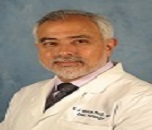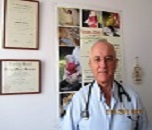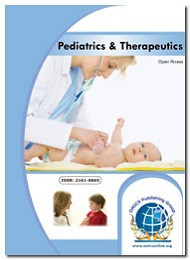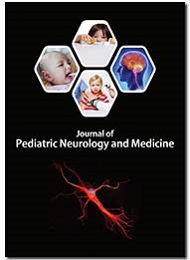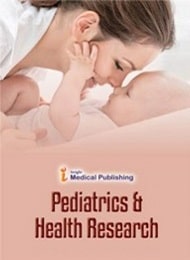Theme: Advancing Pediatric Healthcare: Innovation and Excellence
World Pediatrics-2024
- About Conference
- Sessions & Tracks
- Relevant Conferences & Societies
- Market Analysis
- Past Conference Report
Welcome to the 37th World Pediatrics Conference in Zurich, Switzerland, on May 23-24, 2024. Under the theme "Advancing Pediatric Healthcare: Innovation and Excellence," we unite to explore breakthroughs, share insights, and propel the field of pediatric medicine towards an even brighter future. Join us for this inspiring journey.
The main objective of the conference is to bring together International Pediatric Scientists, Neonatologists, Pediatric Researchers, Pediatric Nurses, Pediatric Associations and Societies, Pediatric Faculty, Pediatric Physicians, Research Scholars, Student Delegates, and Exhibitors from all around the world will be participating at the conference. Oral presentations, poster presentations, keynote talks, workshops, and more will be featured during the conference.
Why to attend?
- Knowledge Advancement: Stay updated with the latest research, advancements, and best practices in the field of pediatrics.
- Networking: Connect with a diverse community of pediatric experts, healthcare professionals, and researchers, fostering valuable collaborations and partnerships.
- Continuing Education: Earn CME credits and expand your professional development through sessions led by renowned experts.
- Innovations and Technologies: Explore cutting-edge technologies and solutions that can improve patient care and outcomes in pediatrics.
- Influence and Impact: Contribute to discussions that shape the future of pediatric healthcare, making a positive impact on child well-being globally.
- Global Perspectives: Gain insights into international healthcare practices and policies, allowing you to adapt and implement best practices in your own region.
- Inspiration: Hear inspirational stories and ideas that can motivate and invigorate your work in the field of pediatrics.
- Research Opportunities: Discover potential research avenues, collaborate with peers on projects, and stay updated on the latest findings.
- Personal and Professional Growth: Participate in discussions, workshops, and presentations that can enhance your skills and competencies.
- Contribution to Pediatric Healthcare: Your presence and participation help support and advance the field, ultimately improving healthcare for children worldwide.
Who to attend the conference?
Clinical Nurse Specialists | Hospital Administrators | Legal Nurse Consultants | Manufacturing Medical Devices Companies | Medical Colleges | Neonatal Faculty | Neonatal Nurses/Nurse Practitioners | Neonatal Nutritionists | Neonatal Researchers | Neonatal Specialists | Neonatologists | Nurses | Pediatric Dieticians | Pediatric Cardiologists | Pediatric Faculty | Pediatric Nutritionists | Pediatric Physicians | Pediatricians | Pediatrics Specialists | Perinatal Nurses/Nurse Practitioners | Physician Assistants | Researchers | Residents | Training Institutes | Young researchers.
Track 01: Pediatrics
Pediatrics is the specialty of medical science concerned with the physical, mental, and social health of children from birth to young adulthood. Pediatric care encompasses a broad spectrum of health services ranging from preventive health care to the diagnosis and treatment of acute and chronic diseases. Pediatrics is a discipline that deals with biological, social, and environmental influences on the developing child and with the impact of disease and dysfunction on development. Children differ from adults anatomically, physiologically, immunologically etc.
- Pediatric audiology
- Pediatric dermatology
- Pediatric ophthalmology
Track 2: Pediatric Cardiology
Pediatric cardiology is a medical specialty focused on diagnosing and treating heart conditions in children, from birth through adolescence. Pediatric cardiologists are highly specialized physicians who use various diagnostic tools to assess congenital and acquired heart defects. Treatment options include medications, minimally invasive procedures, or open-heart surgery, tailored to the child's condition. These experts play a vital role in managing congenital heart defects, ensuring early intervention, and monitoring patients' long-term well-being. Pediatric cardiologists may also address risk factors and engage in research to advance knowledge in the field, aiming to provide the best possible care for young patients with heart issues.
- Atrial septal defects
- Ventricular septal defects
- Tetralogy of fallot
Track 3: Pediatrics Surgery
Pediatric surgery is a specialized branch of medicine that deals with surgical procedures specifically tailored for infants, children, and adolescents. Pediatric surgeons have expertise in diagnosing, treating, and managing a wide range of surgical conditions affecting young patients, including congenital anomalies, injuries, tumours, and infections. These surgeons are skilled in performing both routine and complex surgeries, often using minimally invasive techniques to minimize trauma and promote faster recovery in children. Common pediatric surgical procedures include appendectomies, hernia repairs, tumour removals, and corrective surgeries for congenital defects. Pediatric surgeons collaborate closely with other specialists, pediatricians, and healthcare professionals to ensure comprehensive care for pediatric patients. They play a crucial role in improving the quality of life for children by providing safe and effective surgical interventions tailored to the unique needs of young patients.
- Congenital anomalies
- Trauma surgery
- Oncological surgery
Track 4: Pediatric Neurology and Neurological Disorders
Pediatric neurology is a medical field specializing in diagnosing and treating neurological disorders in children. These disorders can affect the brain, spinal cord, nerves, and muscles. Common conditions include epilepsy, cerebral palsy, neurodevelopmental disorders like autism and ADHD, headaches, neuromuscular disorders, genetic disorders, movement disorders, strokes, and brain tumors. Pediatric neurologists collaborate with other specialists to provide comprehensive care, striving for early diagnosis and appropriate treatment. Their expertise is crucial in helping children with neurological disorders lead healthier, more fulfilling lives, and ensuring that unique pediatric considerations are addressed in the diagnosis and management of these conditions.
- Epilepsy
- Cerebral palsy
- Neurodevelopmental disorders
Track 5: Pediatrics Obesity
Pediatric obesity is a concerning public health issue characterized by excess body fat in children and adolescents. It results from a complex interplay of genetic, environmental, and lifestyle factors, including poor diet and sedentary behaviour. Childhood obesity is associated with numerous health risks, such as type 2 diabetes, high blood pressure, and cardiovascular disease. It can also lead to psychological and social challenges. Preventing and managing pediatric obesity involves a multidisciplinary approach, including dietary and lifestyle modifications, increased physical activity, and family support. Addressing childhood obesity is essential to ensure the long-term health and well-being of affected children and to curb the associated health care burdens.
- Pediatric nutrition
- Pediatric endocrinology
- Child and adolescent psychiatry
Track 6: Pediatric Nutrition and Baby Foods
Pediatric nutrition is the science of providing essential nutrients to support the growth, development, and overall health of infants and children. It involves ensuring that children receive a balanced diet rich in vital nutrients, including vitamins, minerals, and macronutrients like carbohydrates, proteins, and fats. Baby foods are specially formulated to meet the unique nutritional needs of infants. They typically start with pureed or mashed foods and gradually introduce a variety of solids as a baby grows. Nutrient-dense and age-appropriate baby foods are vital for proper growth and development. Pediatric nutritionists and dieticians play a crucial role in advising parents and caregivers on the best dietary choices for children at different stages of development.
- Breastfeeding support
- Infant feeding practices
- Pediatric dietetics
Track 7: Pediatric Dermatology
Pediatric dermatology is a medical subspecialty that focuses on the diagnosis and treatment of skin conditions in children, from infancy to adolescence. Pediatric dermatologists are experts in managing a wide range of skin disorders and issues specific to the pediatric population. This includes common problems like eczema, acne, warts, and birthmarks, as well as more complex conditions such as genetic skin disorders and inflammatory diseases. They play a crucial role in providing specialized care, addressing skin conditions' impact on a child's physical and emotional well-being. Pediatric dermatology aims to improve the skin health of children, promoting confidence and overall quality of life.
- Neonatal dermatology
- Atopic dermatitis and eczema
- Acne and adolescent dermatology
Track 8: Pediatrics Haematology & Oncology
Pediatrics Haematology & Oncology is a medical subspecialty that combines the management of blood disorders (haematology) and the treatment of childhood cancers (oncology) in infants, children, and adolescents. Pediatric haematologists-oncologists are experts in diagnosing and treating a range of conditions, including leukaemia, lymphoma, solid tumours, and various blood disorders like anaemia and haemophilia. They use a multidisciplinary approach, employing chemotherapy, radiation therapy, bone marrow transplants, and other therapies. The field also emphasizes research, clinical trials, and compassionate care, recognizing the unique needs of young patients and their families, while striving to improve outcomes and quality of life.
- Pediatric leukaemia
- Pediatric lymphoma
- Pediatric brain tumours
Track 9: Pediatric Ophthalmology
Pediatric ophthalmology is a specialized branch of medicine focused on the eye health and vision care of children, from new-borns to adolescents. Pediatric ophthalmologists are experts in diagnosing and treating a wide range of eye conditions specific to the pediatric population, including refractive errors, strabismus (crossed or misaligned eyes), amblyopia (lazy eye), and congenital eye abnormalities. They use various techniques, such as vision testing, eye exams, and sometimes surgical interventions, to address these issues. Early detection and intervention are essential in pediatric ophthalmology to prevent long-term vision problems and ensure healthy visual development as children grow.
- Strabismus and amblyopia
- Refractive errors
- Congenital and genetic eye disorders
Track 10: Pediatric Urology & Nephrology
Pediatric urology and nephrology are medical subspecialties that focus on the urinary and kidney health of children. Pediatric urologists specialize in diagnosing and treating conditions such as congenital urological anomalies, voiding dysfunction, and urological cancers in young patients. Pediatric nephrologists, on the other hand, are experts in kidney-related disorders, including kidney diseases, urinary tract infections, and electrolyte imbalances. They provide medical and surgical care, manage kidney transplants, and address issues like bedwetting and hypertension in children. Both specialties aim to ensure the well-being of children by addressing the unique urological and nephrological needs of this population.
- Vesicoureteral reflux
- Hydronephrosis
- Pediatric urologic oncology.
Track 11: Pediatric Nursing
Pediatric nursing is a specialized area of healthcare that focuses on the medical care and well-being of infants, children, and adolescents. Pediatric nurses play a vital role in assessing and providing healthcare to young patients, offering a range of services including administering vaccinations, conducting health assessments, and supporting children and their families in managing illness and recovery. They collaborate closely with pediatricians, pediatric specialists, and other healthcare professionals to deliver age-appropriate care. Pediatric nurses also provide crucial education and emotional support, helping families understand medical conditions and treatment plans while ensuring the comfort and health of their young patients.
- Neonatal nursing
- Pediatric intensive care nursing
- Pediatric oncology nursing
Track 12: Pediatric Emergency Medicine
Pediatric emergency medicine is a specialized medical field dedicated to the acute care of infants, children, and adolescents in urgent medical situations. Pediatric emergency physicians are experts in assessing, diagnosing, and treating a wide range of pediatric emergencies, from injuries and infections to life-threatening conditions. They work in hospital emergency departments and urgent care centers, providing rapid, age-appropriate care, often in high-stress environments. Pediatric emergency medicine emphasizes the unique healthcare needs of children, addressing both medical and emotional aspects, with a focus on quick and effective interventions to ensure the best possible outcomes for young patients facing critical health challenges.
- Trauma pediatrics
- Pediatric critical care
- Pediatric poisoning and toxicology
Track 13: Pediatric Endocrinology
Pediatric endocrinology is a medical subspecialty that focuses on the diagnosis and management of hormone-related disorders in children, from infancy through adolescence. Pediatric endocrinologists specialize in conditions such as diabetes, growth disorders, thyroid disorders, and disorders of the pituitary and adrenal glands. They provide comprehensive care, which may involve hormone replacement therapy, dietary management, and close monitoring of growth and development. Early intervention and management are crucial to ensure optimal growth, development, and overall health for young patients with endocrine disorders. Pediatric endocrinology plays a critical role in promoting the well-being and quality of life of children with these conditions.
- Pediatric diabetes
- Pediatric growth disorders
- Pediatric thyroid disorders
Track 14: Pediatric Dentistry
Pediatric dentistry is a specialized branch of dentistry dedicated to the oral health and dental care of infants, children, and adolescents. Pediatric dentists, or pedodontists, are highly trained to provide age-appropriate dental care, emphasizing prevention, education, and early intervention. They address a wide range of dental issues, including preventive care, cavity treatment, orthodontic assessment, and management of dental trauma. Pediatric dentists create a child-friendly, non-intimidating environment to ensure young patients' comfort and to foster a positive attitude toward oral health. Their goal is to help children maintain healthy smiles and establish lifelong habits for dental well-being.
- Preventive pediatric dentistry
- Pediatric orthodontics
- Pediatric sedation dentistry
Track 15: Pediatric Infectious Diseases
Pediatric infectious diseases are a medical subspecialty that focuses on the diagnosis, treatment, and prevention of infections in infants, children, and adolescents. Pediatric infectious disease specialists are experts in a wide range of infectious conditions, including bacterial, viral, fungal, and parasitic infections. They play a crucial role in managing infectious diseases that are unique to or more prevalent in children, such as childhood vaccinations and congenital infections. Pediatric infectious disease specialists work to prevent outbreaks, provide appropriate treatment, and address the specific healthcare needs of young patients, ensuring their well-being and reducing the spread of contagious diseases within the pediatric population.
- Pediatric immunizations
- Pediatric HIV and infectious diseases
- Pediatric travel medicine
Relevant Conferences: Pediatrics Conferences 2024 | Neonatology Conferences | Clinical Pediatrics Conferences | Child Care Conferences | Clinical Pediatrics 2024 Meetings | European Pediatrics Conferences | Scientific Pediatrics Conferences | Best Pediatrics Meetings 2024 | Pediatrics Conferences | Pediatric Surgery Conferences | Neonatology Conferences | Pediatrics Conferences 2024 | Top Pediatrics Conferences 2024 | Pediatrics Nutrition Conferences 2024 | World Pediatrics Conferences 2024 | Pediatric Cardiology 2024 | Pediatric Oncology Conferences | Global Pediatrics Conferences | Annual Pediatrics Meetings | Pediatrics International Conferences
9th World Congress on Patient Safety & Quality Healthcare, January 11-12, 2024 Dubai, UAE; 39th International Conference on Advanced Pediatrics and Neonatology, March 14-15, 2024 London, UK; 32nd International Conference on Clinical Pediatrics, June 13-14, 2024 Rome, Italy; 34th European Pediatrics Conference, May 09-10, 2024 Barcelona, Spain; 11th International Conference on Gynecology and Obstetrics, March 18-19, 2024 Zurich, Switzerland
Relevant Societies:
EUROPE: Society for Pediatric Research, European Society of Pediatric and Neonatal Intensive Care, European Academy of Pediatrics, European Society for Pediatric Dermatology, Associations for European Pediatrics and Congenital Cardiology, Czech Pediatric Society, European Academy of Pediatric Societies, European Association of Pediatric Education, European Confederation of Primary Care Pediatricians, European Pediatric Association, European Pediatric Association, European Pediatric Neurology Society, European Pediatric Surgeon’s Association, European Society for Child and Adolescent Psychiatry, European Society of Pediatric Dermatology, European Society of Pediatric Infectious Diseases, European Society of Pediatric Neonatal and Intensive Care, European Society of Pediatric Neurosurgery, European Society of Pediatric Research, European Society of Pediatrics Allergy and Clinical Immunology, European Society of Pediatrics Endocrinology, European Academy of Pediatrics.
USA: American Academy of Pediatrics, Academy of Neonatal Nursing, Association of Pediatric Oncology Nurses, Association of Child Neurology Nurses, National Association of Neonatal Nurses, National Association of Pediatric Nurse Practitioners, National Certification Board of Pediatric Nurse Practitioners and Nurses, Society of Pediatric Nurses, American Pediatric Surgical Nurses Association, Northeast Pediatric Cardiology Nurses Association, American Pediatric Surgical Association, American Association for Pediatric Ophthalmology and Strabismus, American Society of Pediatric Otolaryngology, Society for Pediatric Anaesthesia, International Association of Pediatric Nurses, Canadian Pediatric Society, Pediatric Dental Association, Georgia Pediatric Practice Managers Association, Academic Pediatric Association, Children's Hospital Association, North Carolina Pediatric Society, North Dallas Pediatric Association, Burlington Pediatric Association, American Pediatric Surgery Association, American Pediatric Society
ASIA PACIFIC: Asia Pacific Pediatric Association, Asian Society for Pediatric Research, The Malaysian Pediatric Association, Association of Pediatric Surgeons Bangladesh, Indonesian Society of Pediatric Surgeons, Japanese Society of Pediatric Surgeons, Korean Association of Pediatric, Taiwanese Association of Pediatric, Vietnam Association of Pediatric
Pediatrics is the branch of medicine dealing with the care of infants, children and adolescents and the prevention and treatment of their diseases. Although most thinking and analysis of health care is taken from the adult health care system, issues surrounding pediatrics are unique and challenging and should be treated differently than adults.
A major challenge the pediatric healthcare community faces is in relation to Medicaid funding. While the cost of health care for most children is relatively low, those who require hospitalization or specialty care experience a tremendous increase in total cost. Additionally, with a focus on preventative medicine, more resources need to be allocated to pediatrics. Medicaid funding for children estimates about 20 per cent of total funds, yet children makes up about 60 per cent of enrolees. Typically, nursing homes and geriatrics utilize the most Medicaid dollars but for a much smaller population. While healthcare reform is an on-going issue, the unique needs of children need to be included.
“Pediatricians Market” 2019-2024 report analyses important features in key developing markets. The analysis contains market size, newest trends, drivers, threats, opportunities, as well as key market segments. The study reveals market dynamics in numerous geographic segments along with Pediatricians market analysis for the current market environment and future development over the forecast period.
The global Pediatric Medical Devices Market was valued at USD 30.4 billion in 2022 and expected to grow US$ 70.7 billion in 2032. Between 2023 and 2032, this market is estimated to register a CAGR of 9.05%.
Market growth is expected to be driven by the increased demand for pediatric medical equipment, and the increasing prevalence of chronic diseases in children like asthma and respiratory disease. The COVID-19 pandemic was a significant factor in the decline of the market for pediatric medical devices. Globally, medical device companies have built facilities and some have closed down due to the pandemic. Due to the lockdown, the transportation of critical medical devices is being allowed. These medical devices became more crucial during the pandemic. The restrictions on supply and delivery were lifted as lockdowns all over the world are open.
We extend our sincere gratitude to all our esteemed speakers, conference participants, and sponsors. The World Pediatrics Conference in 2023 was an outstanding success!
The 36th World Pediatrics Conference, organized by Conference Series, as a webinar on August 07, 2023. We were overwhelmed by the enthusiastic response and active engagement from various stakeholders, including Editorial Board Members of the Conference Series, pediatricians, neonatologists, pediatric researchers, pediatric nurses, pediatric associations and societies, pediatric faculty, pediatric physicians, radiologists, pharmaceutical and healthcare industries, researchers, and students. Their collective effort played a vital role in making this event a triumph.
Throughout the webinar, we delved into numerous topics within the field of pediatrics. The major scientific tracks and discussions included:
- Pediatric Cardiology
- Pediatric Infectious Diseases
- Pediatric Dentistry
- Pediatric Neurology and Neurological Disorders
- Pediatric Subspecialties
With the resounding success of World Pediatrics-2023, Conference Series is delighted to announce the upcoming “37th World Pediatrics Conference." This event is scheduled to take place in Zurich, Switzerland, from May 23-24, 2024. We look forward to another exceptional gathering of pediatric experts, sharing knowledge and advancing the field of pediatrics. Stay tuned for more details on registration, esteemed speakers, and the topics to be explored during this forthcoming conference.
Conference Highlights
- Pediatrics
- Pediatric Cardiology
- Pediatric Surgery
- Pediatric Neurology and Neurological Disorders
- Pediatrics Obesity
- Pediatric Nutrition and Baby Foods
- Pediatric Dermatology
- Pediatrics Haematology & Oncology
- Pediatric Ophthalmology
- Pediatric Urology & Nephrology
- Pediatric Nursing
- Pediatric Emergency Medicine
- Pediatric Endocrinology
- Pediatric Dentistry
- Pediatric Infectious Diseases
To share your views and research, please click here to register for the Conference.
To Collaborate Scientific Professionals around the World
| Conference Date | May 23-24, 2024 | ||
| Sponsors & Exhibitors |
|
||
| Speaker Opportunity Closed | |||
| Poster Opportunity Closed | Click Here to View | ||
Useful Links
Special Issues
All accepted abstracts will be published in respective Our International Journals.
Abstracts will be provided with Digital Object Identifier by












